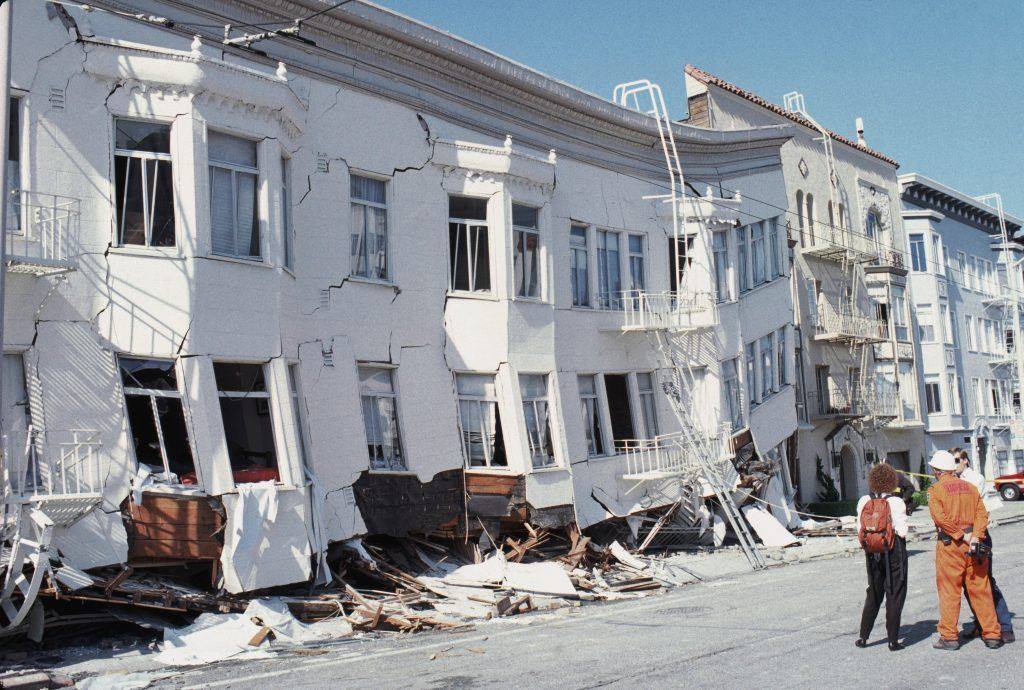An earthquake is another outstanding analogy for PTSD. An earthquake is a sudden, sometimes violent, shaking of the ground, possibly causing great destruction, as a result of movements within the earth’s crust or volcanic action. There are over 50 earthquakes every day; that is over 20,000 a year.
We only hear about the ones that cause destruction for the most part. The overwhelming majority of all earthquakes do little to no damage. Amazingly, a slight earthquake can actually strengthen the upper surface, by adjusting lower plates. Just like MOST warriors with diagnosed PTSD will actually be strengthened by “Post Traumatic Growth.”
Yes, their trauma will actually make them stronger. Due to the adversity the warriors experience in combat, they are much better able to deal with other stressors in life.
It is impossible to get objective data for the following; therefore, this is totally subjective (I made up the numbers), but the numbers will illustrate my point.
A very low-level earthquake is compared to a large percentage of warriors diagnosed with PTSD. They will function as well or maybe even better than they did before their battlefield trauma. Warriors diagnosed with PTSD at this level will likely need NO assistance in dealing with any issues. Self-aid may be all that is needed. A low-level earthquake that is compared to the overwhelming majority of warriors diagnosed with PTSD. They will function as well or even better than they did before their battlefield trauma. Warriors diagnosed with PTSD at this level will need little to no assistance in dealing with their issues, BUT may benefit from talking to a fellow warrior from time to time. Self-aid combined with buddy-aid may be all that is needed. 95% of those diagnosed with PTSD fall into the above groups.
Now, what about those other 5%?
These are the earthquakes that we hear about. Think about it though, most of the time we hear about an earthquake, if we are even paying attention, it is the news media stating there was a ?? Magnitude earthquake that shook __________ and caused extensive, but repairable damages. You may be able to fix some of the damages to your property by yourself, but at this level, you will need much buddy-aid, and likely some other aid (counseling, group therapy, etc.). I will assign 4% to this category.
The final 1% are those earthquakes that we not only hear about, but we remember too. These are the warriors that are debilitated by their combat trauma. I have never witnessed any warrior in this state. I know PTSD is a factor, sometimes a major factor, but almost always there is something else.
Here is an example of the only warrior I have ever witnessed that just could not function on his own because of his PTSD; they said. The reality, his TBI was his number one issue, followed by massive amounts of injuries; broken bones, body parts missing, etc. Right before I met this young Sgt his wife had left him and his house burned down with everything he owned in it.
Think about this Marine, the next time you start bitching about life.
Multiple major life stressors; any one of these stressors could disrupt even the most stable of lives.
In sum, most warriors are even better citizens after their trauma than they were before it. We, the veterans need to educate the public about combat stress. If we do not, then we cannot complain when the vet jobless rate rises. Who would hire a possible psychopath? Not me, but I would hire a combat vet, any day of the week and twice on Sunday.
The news media and Hollywood have shed an extremely “dark” light on PTSD. Some civilians think we are a bunch of unstable psychopaths.
PTSD does not cause anyone to become a criminal. It MAY be a factor, but PTSD is not the cause. Face it, some of us were scumbags before we joined the military and some us will be when we get out; and some were when they were in. Every time there is a major crime in the US with a vet perpetrator, the first thing the media does is try to link the crime to PTSD and or military service in general. Almost always they are wrong and there is absolutely no link between being a scumbag and being a vet.
Some people commit crimes, get used to it, crime has been around for a very long time.
Call a buddy; loneliness kills.
SF DKD
Image from duckduckgo
Follow our regular channel at Spotterup on YouTube
Follow our WEBSITE
Follow on Instagram
Follow on WeMe
Visit our STORE
*The views and opinions expressed on this website are solely those of the original authors and contributors. These views and opinions do not necessarily represent those of Spotter Up Magazine, the administrative staff, and/or any/all contributors to this site.

